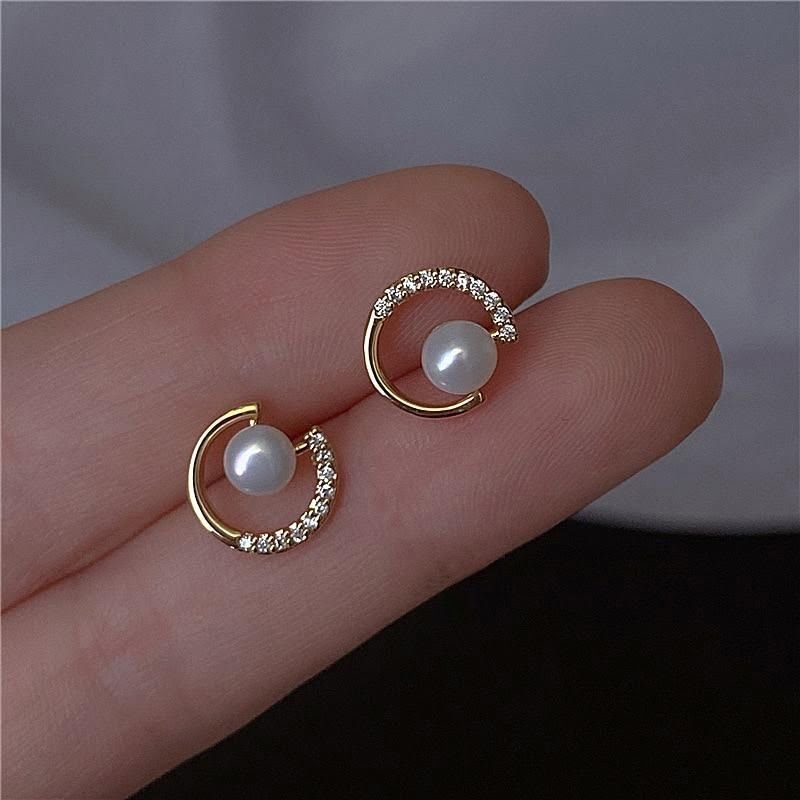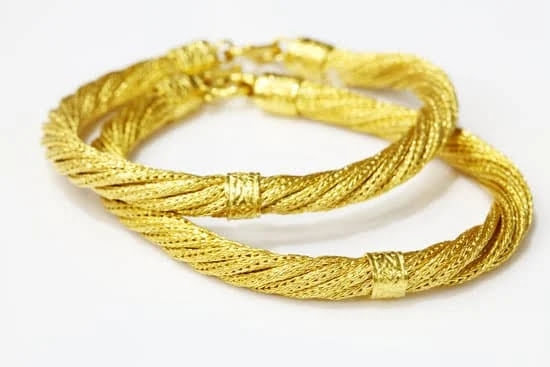Introduction
Cleaning jewelry at home should involve taking necessary precautions to make sure your jewelry remains in good condition. It is important to be careful when cleaning and storing jewelry to avoid damaging it. Before you begin, make sure you have the right tools and supplies. Read on for helpful tips on how to safely clean jewelry at home.
Choose Appropriate Cleaning Products: The key is to choose a gentle cleaner that won’t damage the metal or gemstones of your jewelry piece. A mild soap such as dishwashing liquid mixed with warm water is the safest option for most pieces, like gold, silver, and diamonds. Never use products meant for hard surfaces since they are too harsh for cleaning delicate materials like jewelry.
Know What Not To Do: When cleaning delicate gems like pearls, opals, or turquoise in particular, it’s important to avoid using anything that could cause physical damage (i.e. abrasive sponges). Additionally, never expose your jewelry to chemicals such as bleach or strong detergents as these can corrode their settings and weaken any bonds between precious stones and materials they may be set in (i.e. glue).
Rinse Thoroughly: To be sure nothing gets left behind after you’re done cleaning, it’s essential to rinse your Jewelry thoroughly with lukewarm water—particularly if you used a specialized cleaner which may contain residue that can irritate skin or soak into porous gemstones (like emeralds) over time. Be sure all surfaces of the metal and stone components come into contact with plenty of running water as this will help ensure they remain sparkling clean longer!
Storage Tips: Once you have finished cleaning your jewelry pieces, it is important to store them properly so dirt does not accumulate on them again until the next time you need them. For example, always keep pearl necklaces strung on either silk or nylon thread away from direct sunlight and other sources of heat in an airtight container; never store any type of fine jewelry together with costume pieces; and lastly remember to always take off rings prior to exercising or doing any other strenuous activities!
Types of Jewelry
Various types of jewelry are crafted from different metals, stones, and gemstones. Understanding the type of jewelry you own will help you correctly clean it without damaging it. Popular precious metals used in jewelry include gold, silver, platinum and palladium. Gold is often alloyed with other metals such as nickel, zinc or copper to make other popular gold colors such as rose gold and white gold. Silver is sometimes alloyed with copper to increase its strength and durability. Platinum and palladium are often used in higher-end fine jewelry pieces.
Apart from precious metals, fashion jewelry can be made of a variety of non-precious materials such as brass, stainless steel, iron etc. It’s important to note that not all cleaning agents are suitable for each metal so be sure to read the labels on your cleaner before using them on any type of metal jewelry!
Similarly, when we talk about stones used in jewelry there is an array of natural minerals used including diamonds, rubies, opal sapphires etc – this kind of gemstone jewelry requires gentle cleaning with special stone cleaners that can both polish the stone’s surface and protect it from scratches caused by dirt particles. Additionally, if your piece includes pearls; when cleaning them it’s best to just use a mild soap like baby shampoo mixed with water and gently buff the pearls dry with a soft cloth!
Preparing to Clean Jewelry
When preparing to clean jewelry at home, it is important to consider the tools and equipment needed for each type. For instance, silver jewelry should be cleaned with a soft cloth and a silver polish or jewelry cleaner specifically designed for silver. Brass and gold pieces should be washed with a mild dish soap and lukewarm water, as well as a sheep’s wool cloth. Onyx pieces demand extra care and attention when cleaning, so warm soapy water and a soft brush are recommended instead of harsh polishing materials. Pearls should only be wiped clean with a damp cloth, because any chemical cleaners can damage the delicate surface of the jewels. A dry, soft toothbrush may also prove helpful in the Jewellery cleaning process by applying gentle pressure to remove dirt from nooks or crevices while minimizing general wear-and-tear. If necessary, always consult an expert jeweller before attempting any kind of cleanse to prevent damage to expensive precious stones.
Cleaning Metal Jewelry
Metal jewelry, such as gold and silver, is an important part of any wardrobe. However, due to regular wear and tear, certain metals may start to look dull and need a bit of cleaning from time to time. To get your metal jewelry shining again, here are some tips on how to safely clean it at home.
Firstly, it’s best to use warm water for cleaning metal jewelry. Mix in a few drops of natural liquid or dish soap with the warm water before immersing your jewelry in the mixture for 20-30 minutes. Afterwards, dry the piece of jewelry gently with a soft cloth and polish with a different microfiber cloth for adding shine. This method offers a gentle yet effective way for cleaning delicate pieces of jewelry like rings and earrings without incurring any damage.
Additionally, if you feel like your piece needs more care than warm soapy water can provide, there are specialized solutions available that contain special elements designed specifically to clean metal jewelry while preserving color and shine. An ultrasonic cleaner is also an effective option if you want to deep clean your most valuable items but they require extra care because they often use strong chemicals inside them in order to do the job properly so follow the instructions carefully when using one at home. Finally, it’s important to store your newly cleaned piece in a cool dark place so that it stays away from direct sunlight or any moisture which can further tarnish its appearance and take away its luster.
Cleaning Gemstones and Pearls
Before cleaning your gemstone or pearl jewelry, it is important to first determine what type of stone you have. For softer stones like opal and turquoise, rubbing with a soft cloth should take most grime off. For hard stones like diamonds, rubies and sapphires, however, it’s best to use a mild dishwashing detergent mixed with warm water. Make sure the liquid isn’t too hot as this could cause damage or color change in certain stones. You can soak your jewels for up to 30 minutes and then gently scrub them using a small soft brush (or an old toothbrush) before rinsing with clear cool water and drying them with a clean cloth. Do not use any harsh chemicals on your gemstones or pearls.
When caring for pearls specifically, make sure not to submerge them into the cleaning liquid as this could dry out the delicate material. Instead dampen a cloth with the same solution mentioned above and gently rub away any dirt on the surface. After they are clean, be sure to dry everything off immediately as moisture can cause discoloration if left on the pearls for too long. Also consider having your pearls professionally inspected every 6 months or so; improper handling or storing can cause structural damage that is not always visible to the naked eye but significant to its value.
Troubleshooting
When jewelry is too dirty or damaged to clean at home, it is recommended to take it to a professional jeweler. A jeweler often offers services such as cleaning and polishing, repairing chips and holes, refinishing or replacing clasps and settings, or even resetting stones. Many jewelry repair specialists can also replace missing stones if the proper stone is available for purchase. If the damage is too severe, the jewelry may need to be replaced entirely. To avoid accidental damage when removing diamonds from settings (or emeralds from their bezel cups), using specialized tools in trained hands is highly recommended. Very delicate pieces of antique jewelry may require specific techniques due to age and condition. In addition, diamond setters who work with precious metals are experts at handling small components without damaging them. No matter how small the piece might be, skilled craftsmen know exactly how to safely dismantle each setting while taking extra precautions in handling smaller pieces like bezels, prongs and threads.
Avoiding Damage
When cleaning jewelry at home, it’s important to take precautionary measures to avoid any damage and ensure your jewelry stays in great condition. Some steps you can take include making sure all clasps and gemstones are secure and won’t be disturbed during the cleaning process. You should also inspect each piece for any signs of wear or tear that may indicate that the piece requires repair before you begin. Additionally, ultrasonic cleaners and cleaners with abrasives should be avoided. Using these methods could cause irreversible damage to delicate pieces or stones. Before going ahead with any cleaning solution for your jewelry make sure you know the types of material it is made out of such as gold, silver, or platinum so that you can use the appropriate solution. It’s also essential to follow the instructions provided on any product labels when using a home cleaner. If a cleaner calls for rinsing with water make sure to dry your jewelry thoroughly afterward while still being mindful not to impact any fragile settings or lose stones due to vigorous towel drying. Lastly, store your clean jewelry in a soft cloth bag or case away from potential scratching and tarnishing agents like other metals or wood products used in furniture; this will help keep your pieces sparkling and ready for years of enjoyment!
Conclusion
Cleaning jewelry at home has numerous benefits when done correctly. Not only does it save time and money, but it can help preserve the beauty of your jewelry. By using simple, inexpensive products to clean your jewelry, you can make sure that your jewelry remains looking its best without spending extra money or taking a trip to a professional jeweler. Cleaning jewelry at home is also beneficial because it helps you know exactly what you are using on your items, allowing for better control and consideration of the specific material or metals used in each piece. Lastly, cleaning jewelry at home provides a sense of accomplishment and pride in caring for your most special possessions.

Welcome to my jewelry blog! My name is Sarah and I am the owner of this blog.
I love making jewelry and sharing my creations with others.
So whether you’re someone who loves wearing jewelry yourself or simply enjoys learning about it, be sure to check out my blog for insightful posts on everything related to this exciting topic!





